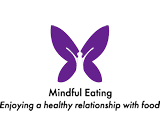 How To Fix Your Relationship With Food: The Inner Child
How To Fix Your Relationship With Food: The Inner Child
Many people have a difficult relationship with food, and one thing that clients find very helpful is exploring with me their ‘Inner Child’. It can be a very effective strategy for helping clients to understand and improve their relationship with food, as it involves bringing their Inner Child motivations into awareness, to help them identify, understand, and tackle problematic eating behaviours.
The Inner Child ego state comes from Transactional Analysis, developed by psychiatrist Eric Berne. It’s a very versatile and very helpful tool used in counselling and psychotherapy. It is based on three ‘ego states’: Child, Parent and Adult- we all shift in and out of these states, and they influence how we interact with the world as we perceive and respond to information or interpersonal communication. I will start by quoting a male client, as a basis for a case-study, who recently said to me:-
“My dad was a health-conscious doctor, and we weren’t allowed sweets. There were times when we could have aniseed balls, but he would wash off the sugary red coating, leaving just the aniseed centre before giving them to us. I felt quite deprived, especially because I knew my friends were allowed sweets. Any time possible I would try and get sweets through my friends. In our house we had an apple and pear jam which wasn’t normal jam with sugar in. We always had wholemeal bread, and my greatest excitement was to go next door to neighbours and have white bread and jam sandwiches for tea. I used to keep a box of sweet treats in my bedroom”.
What Is The Inner Child?
The Inner Child is a concept representing the childlike aspects of our personality and emotional state. It is comprised of memories of our childhood experiences that can influence our adult identity and behaviour in the here-and-now. The Child ego state is shaped by positive or negative responses or reinforcements we were given primarily from our parents or main caregivers in childhood, to behave or not behave in a certain way. Our Inner Child can ‘show up’ at any time in adulthood, affecting our social interactions and behaviours.
Our Inner Child can reflect both positive qualities such as playfulness, creativity, spontaneity and pleasure-seeking (‘Free Child’ ego state), and more negative or problematic qualities stemming from unresolved childhood experiences, hurts and fears. It’s important for a child to feel loved, validated and to have a carefree life, but unfortunately many people can grow up in a hostile or unloving environment, affecting a person’s self-concept, identify and view of the world well into adulthood. For someone who experienced a loving, carefree childhood, it might be much easier for their playful, Free Child to manifest, and for them to be their true authentic selves without fear of being criticized or rejected.
Our Early Decisions As Children
We all have an inner child- our historical self, shaped by memories and experiences. As part of our innate survival strategy, around the age of approximately 5 or 6 years of age, a child makes decisions (consciously or subconsciously) about how to be liked and how to survive, based on their upbringing and experiences. As a child’s brain is still developing, maturing into the twenties, when he or she makes a decision, it may not therefore be entirely accurate- it might be a decision based on fear, lack of information, and might have an all-or-nothing quality.
How A Child Adapts To Its Environment & Circumstances
If a child’s needs aren’t consistently met, or they experience ongoing emotional neglect, abuse, instability or fear, they will instinctively develop ways to cope. Survival strategies kick in, and the child learns to change their feelings and behaviours or thoughts in response to the world around them. These strategies might be maladaptive protective behaviours and coping mechanisms that might cause the child to modify their thoughts, feelings, beliefs and behaviours to survive, navigate difficult situations and get their needs met. The child starts to adapt to the environment as a way to self-protect, gain attention or even hide, to maintain a sense of control.
Inner Child ‘Triggers’ In Adulthood
 Inner Child responses can persist into adulthood as learned behaviours or internalised belief systems, and we may not be aware of our Inner Child due to subconscious processes. If our Inner Child is triggered, it means that we find ourselves interacting with and responding to someone based on how we felt in childhood, because we’re reverting back to the way we thought, felt and behaved as children- we’re effectively ‘replaying’ childhood- think of it as your ‘living past’. Problems may arise when childhood adaptations, which were once necessary, become maladaptive behaviours in adult relationships and situations. What once ‘saved’ a person might now become the source of their suffering, and hold them back. For example, a person who wasn’t encouraged to express their feelings or who was ignored as a child might find it hard to express their emotions or communicate their needs or vulnerabilities in their adult relationships, or they might turn to food for comfort or to self-soothe – comfort eating can often start in childhood and continue into adulthood.
Inner Child responses can persist into adulthood as learned behaviours or internalised belief systems, and we may not be aware of our Inner Child due to subconscious processes. If our Inner Child is triggered, it means that we find ourselves interacting with and responding to someone based on how we felt in childhood, because we’re reverting back to the way we thought, felt and behaved as children- we’re effectively ‘replaying’ childhood- think of it as your ‘living past’. Problems may arise when childhood adaptations, which were once necessary, become maladaptive behaviours in adult relationships and situations. What once ‘saved’ a person might now become the source of their suffering, and hold them back. For example, a person who wasn’t encouraged to express their feelings or who was ignored as a child might find it hard to express their emotions or communicate their needs or vulnerabilities in their adult relationships, or they might turn to food for comfort or to self-soothe – comfort eating can often start in childhood and continue into adulthood.
The ‘Good Girl’ Or ‘Good Boy’: Conforming With Rules
If a little girl was fearful of her father’s short temper, she might have made lots of effort to follow the rules, be good and keep quiet, to avoid being told off. The child has adapted to her world and responds in the safest, most self-protective way (our inherent need for survival). In this example, the child has adapted in a way to avoid criticism or violence. This ‘good girl’ tendency might manifest in adulthood as a rule-follower, being highly responsible, avoiding conflict or people pleasing, not speaking too much (maintaining a low profile), and the individual might find herself avoiding people with short tempers.
A Rebellious Child Ego State
 There is also a Rebellious Child state, and this can vary from person to person. Someone might have quite an ‘activated’ rebellious child, whereas another person might have a more dominant ‘good’ girl/boy. The ‘inner rebel’ in adulthood can be triggered by a combination of past experiences and unmet needs, and certain situations might evoke feelings of frustration, anger, or injustice.
There is also a Rebellious Child state, and this can vary from person to person. Someone might have quite an ‘activated’ rebellious child, whereas another person might have a more dominant ‘good’ girl/boy. The ‘inner rebel’ in adulthood can be triggered by a combination of past experiences and unmet needs, and certain situations might evoke feelings of frustration, anger, or injustice.
If a child’s positive behaviours and achievements are not acknowledged, celebrated or validated, they may resort to rebellion as a way to get noticed (negative attention). As a child, a person might have felt controlled, invalidated or unheard, leading them to develop a pattern of resistance and defiance as a way to cope or assert themselves. Experience of trauma or abuse might have led to the development of rebellious tendencies as a defence mechanism against further harm. In adulthood, a person might find themselves in a situation where they feel controlled, manipulated, judged or criticised, which might trigger a Rebellious Child ego state, especially if those feelings resonate with past experiences of powerlessness. A direct order from an authority figure, especially if it feels unfair, could trigger a rebellious response, especially if the person has a history of feeling unfairly treated.
A ‘Wounded’ Inner Child
If a person has a ‘wounded’ Inner Child, they might have experienced trauma in childhood. In this case, their fight-or-flight response might be easily activated in adulthood, they might experience anxiety, have catastrophic thoughts or respond in a disproportionate way to the environment. The wounded inner child carries pain and vulnerability from past hurts, and can affect a individual’s self-concept and self-worth. For example, if a child’s parents divorce and the father left home, the child might have come to the erroneous conclusion that the father left because of him, and that he’s unloveable. Their default might be to blame themselves and apologise a lot- there may be a subconscious drive to avoid conflict or rejection at all costs. In adulthood, the person might carry deep-seated guilt, shame, sadness or anger, which might have never been addressed.
Another example is if a child is brought up in a loud, argumentative or chaotic household, they might start to withdraw to their room to escape, creating a safe place- then in adulthood, a person’s Inner Child might crave solitude; alternatively, they might become aggressive, as a way to survive the chaos. If a child has a mother who is emotionally unavailable, the child might adapt by becoming emotionally distant themselves, and then into adulthood, avoid getting close in romantic relationships, or even friendships, for fear of further rejection, or they might try to get validation or attention by becoming a people-pleaser, or display insecure behaviours.
The Adult Ego State
When operating on a daily basis, our default is our Adult ‘Here and Now’. This is our current, reality tested, logical self. It is in the Adult state that we tend to be respectful, rational, make compromise, listen to others’ points of view and generally have more healthy social interactions. When two people are in Adult-to-Adult state, this is therefore an effective and healthy type of communication, it’s productive and minimises the chance of conflict. The way a person interacts with another person can affect whether it remains an Adult-to-Adult conversation or shifts into a different dynamic such as Parent/Child.
The Parent Ego State
 Like the Child ego state, the Parent ego state has subdivisions- Nurturing Parent and Critical Parent. As part of natural development, children tend to internalise and copy behaviours, thoughts and feelings observed from their parents/caregivers. If a person shifts into Parent state, they will be acting in ways they were brought up, whether it’s phrases or behaviours of the parents (or another authority figure). The Critical Parent is disapproving, and the nurturing parent displays love, and may soothe the other person. As an example, if a child was criticized by their critical parent for not getting full marks in a test, they might become a perfectionist, develop a strong sense of not being good enough, have low self-worth, procrastinate with tasks, or become a high achiever. They might of course, find themselves rebelling, even as an adult. The problem with rebellion is that it’s ourselves who miss out, and so having a strong Rebellious Inner Child can be self-limiting.
Like the Child ego state, the Parent ego state has subdivisions- Nurturing Parent and Critical Parent. As part of natural development, children tend to internalise and copy behaviours, thoughts and feelings observed from their parents/caregivers. If a person shifts into Parent state, they will be acting in ways they were brought up, whether it’s phrases or behaviours of the parents (or another authority figure). The Critical Parent is disapproving, and the nurturing parent displays love, and may soothe the other person. As an example, if a child was criticized by their critical parent for not getting full marks in a test, they might become a perfectionist, develop a strong sense of not being good enough, have low self-worth, procrastinate with tasks, or become a high achiever. They might of course, find themselves rebelling, even as an adult. The problem with rebellion is that it’s ourselves who miss out, and so having a strong Rebellious Inner Child can be self-limiting.
A Person’s Relationship With Food: ‘Reactive’ Eating
 A person might have had a weight-conscious mum who encouraged everyone in the family to either try losing weight or avoid getting fat, and who restricted sweet treats. Later on in life, when a person has left home, they might be easily triggered when their partner makes a comment that they should both try to lose weight and stop having sweet treats in the house. Their partner is behaving (not intentionally) as Critical Parent, reminding the other person of their own mother. This might therefore trigger the Rebellious Child, bringing back a memory of how frustrating it was to not be allowed sweet treats. With ‘reactive’ eating, a person is, through their Inner Child, making up for lost time and attempting to claim back some control and freedom, and again, this might be a conscious or subconscious process. Unfortunately this can lead to a difficult relationship with food, which is why helping clients to work on their Inner Child can be a very effective strategy, bringing their Inner Child motivations into awareness to identify and tackle problematic eating behaviours.
A person might have had a weight-conscious mum who encouraged everyone in the family to either try losing weight or avoid getting fat, and who restricted sweet treats. Later on in life, when a person has left home, they might be easily triggered when their partner makes a comment that they should both try to lose weight and stop having sweet treats in the house. Their partner is behaving (not intentionally) as Critical Parent, reminding the other person of their own mother. This might therefore trigger the Rebellious Child, bringing back a memory of how frustrating it was to not be allowed sweet treats. With ‘reactive’ eating, a person is, through their Inner Child, making up for lost time and attempting to claim back some control and freedom, and again, this might be a conscious or subconscious process. Unfortunately this can lead to a difficult relationship with food, which is why helping clients to work on their Inner Child can be a very effective strategy, bringing their Inner Child motivations into awareness to identify and tackle problematic eating behaviours.
Client Case-Study
If we take the above client, whose health-conscious father wouldn’t allow them to eat sweets, he grew up in a house with overly strict rules, leading him to sneak food. Any child who experiences strict rules or harsh criticism might be rebellious, as the child attempts to break free from the constraints and assert their own will. As a 51 year old my client has been eating secretly throughout his married life. He told me about when his wife went out one evening, and he found himself heading straight to some cheesecake in the fridge and ate several pieces. This is a pattern that he’s been repeating ever since childhood, because of the considerable restriction his father place on sweet snacks. Talking through the Inner Child concept with him, he found it really interesting and insightful, and is now aware of the motivations of his often rebellious Inner Child, as well as his fearful Inner Child (for fear of being found out). It’s important to have a carefree Inner Child, and encouraging my client to move away from the ‘badness’ of foods, and instead have fun with enjoyable foods, and experiment with giving himself choice and permission around food has been a very helpful and insightful exercise.
How Does YOUR Inner Child Manifest?
 You might find yourself overreacting to things, or find it hard to tolerate stressful situations, or you might get defensive or feel angry or sad for no apparent reason; you might find yourself wanting to withdraw and binge eat, or wanting to be loved or ‘saved’; perhaps you find yourself in recurring negative patterns within relationships- you might be fearful of abandonment by your partner; perhaps your siblings trigger you today like they triggered you in childhood; you might have a general tendency to think and behave in inflexible, black and white ways; perhaps you get frustrated with being the ‘responsible’ one, yet find it hard to let down your hair and be silly, even though you want to just be carefree; you might have a big fear of failure, or of angering someone, or of being rejected; perhaps you’re a chronic people-pleaser, have difficulty setting boundaries, or you over-apologise or blame yourself for things; perhaps you like to withdraw to a quite place. You might be an over achiever, exhausting yourself through workaholism, and feel guilty or hollow when you’re not working or striving.
You might find yourself overreacting to things, or find it hard to tolerate stressful situations, or you might get defensive or feel angry or sad for no apparent reason; you might find yourself wanting to withdraw and binge eat, or wanting to be loved or ‘saved’; perhaps you find yourself in recurring negative patterns within relationships- you might be fearful of abandonment by your partner; perhaps your siblings trigger you today like they triggered you in childhood; you might have a general tendency to think and behave in inflexible, black and white ways; perhaps you get frustrated with being the ‘responsible’ one, yet find it hard to let down your hair and be silly, even though you want to just be carefree; you might have a big fear of failure, or of angering someone, or of being rejected; perhaps you’re a chronic people-pleaser, have difficulty setting boundaries, or you over-apologise or blame yourself for things; perhaps you like to withdraw to a quite place. You might be an over achiever, exhausting yourself through workaholism, and feel guilty or hollow when you’re not working or striving.
How To Work With Your Inner Child
Building self-insight is the basis for positive change, and once a person becomes aware of their Inner Child’s fears, needs and motivations, they come to understand the root of deeply ingrained habits or responses that have persisted into adulthood, causing them to display recurring negative patterns of behaviour or disproportionate responses in relationships and other social interactions, or any stressful or emotionally charged scenario, including scenarios where food is involved.
 Healing the Inner Child involves recognizing those unhelpful patterns that no longer serve you, understanding their origins and learning healthier ways to respond. It’s about developing a ‘Wise Adult’ self that can nurture and work with your Inner Child, to start liberating yourself from past maladaptive adaptations and behaviours. In a therapeutic setting, the aim is to identify Inner Child triggers and strengthen the Adult of the client, and to help the client discover particular triggers that might cause them to shift into maladaptive Parent or Child ego states, to then identify strategies to use to help them remain in their Adult here-and-now instead. This work requires self-compassion, ‘re-parenting’ yourself, and getting your different ‘selves’ to work together in a more cohesive way. Re-parenting is working with your Inner Child and reassuring him or her that he/she is safe, is loveable, and has a choice.
Healing the Inner Child involves recognizing those unhelpful patterns that no longer serve you, understanding their origins and learning healthier ways to respond. It’s about developing a ‘Wise Adult’ self that can nurture and work with your Inner Child, to start liberating yourself from past maladaptive adaptations and behaviours. In a therapeutic setting, the aim is to identify Inner Child triggers and strengthen the Adult of the client, and to help the client discover particular triggers that might cause them to shift into maladaptive Parent or Child ego states, to then identify strategies to use to help them remain in their Adult here-and-now instead. This work requires self-compassion, ‘re-parenting’ yourself, and getting your different ‘selves’ to work together in a more cohesive way. Re-parenting is working with your Inner Child and reassuring him or her that he/she is safe, is loveable, and has a choice.
For the case study above, my client now recognises that he often repeats old patterns from childhood with his wife, eating sweet treats when she goes out for the evening. This places him in Rebellious Child and his wife in ‘imaginary’ Critical Parent- when in fact, his wife is very unlikely to tell him off for eating foods secretly. His awareness of his rebellious Child has been very helpful in working through what he’s been labelling a ‘sugar addiction’.
Free Yourself From Old Scripts
 It’s also important that any ‘scripts’ we internalised in childhood are questioned and challenged- these might be beliefs of our parents had, such as “You must never get fat because people won’t like you”. We must attune to our own values and belief systems, and stop living in accordance with other people’s expectations. As adults, we can become empowered by connecting to our own values and having the courage to be our true authentic selves; we can free ourselves from the repetitive patterns rooted in childhood that no longer serve us. Doing Inner Child work is never a blame game, and I ensure that as part of the process of helping clients, we step into the shoes of the client’s parents to understand with as much compassion and understanding as possible why they might have parented the way they did.
It’s also important that any ‘scripts’ we internalised in childhood are questioned and challenged- these might be beliefs of our parents had, such as “You must never get fat because people won’t like you”. We must attune to our own values and belief systems, and stop living in accordance with other people’s expectations. As adults, we can become empowered by connecting to our own values and having the courage to be our true authentic selves; we can free ourselves from the repetitive patterns rooted in childhood that no longer serve us. Doing Inner Child work is never a blame game, and I ensure that as part of the process of helping clients, we step into the shoes of the client’s parents to understand with as much compassion and understanding as possible why they might have parented the way they did.
Working with your Inner Child can be a very helpful and insightful way to learn how to fix your relationship with food, but also how to fix your relationship with yourself and other people, and how to feel more happy and at peace in life.
My Services
One-to-one sessions- SPECIAL OFFER: buy 3 sessions up front and get a 4th HALF PRICE (£30). You can contact me to book a session, or give me a call for a FREE chat to find out more (07961 423120). I offer sessions via Zoom or face-to face (based in Surrey).
Webinar: ‘How To Stop Binge Eating For Good’.
See ‘Services‘ for more information.
Visit Eventbrite to see my events schedule and to purchase tickets.


